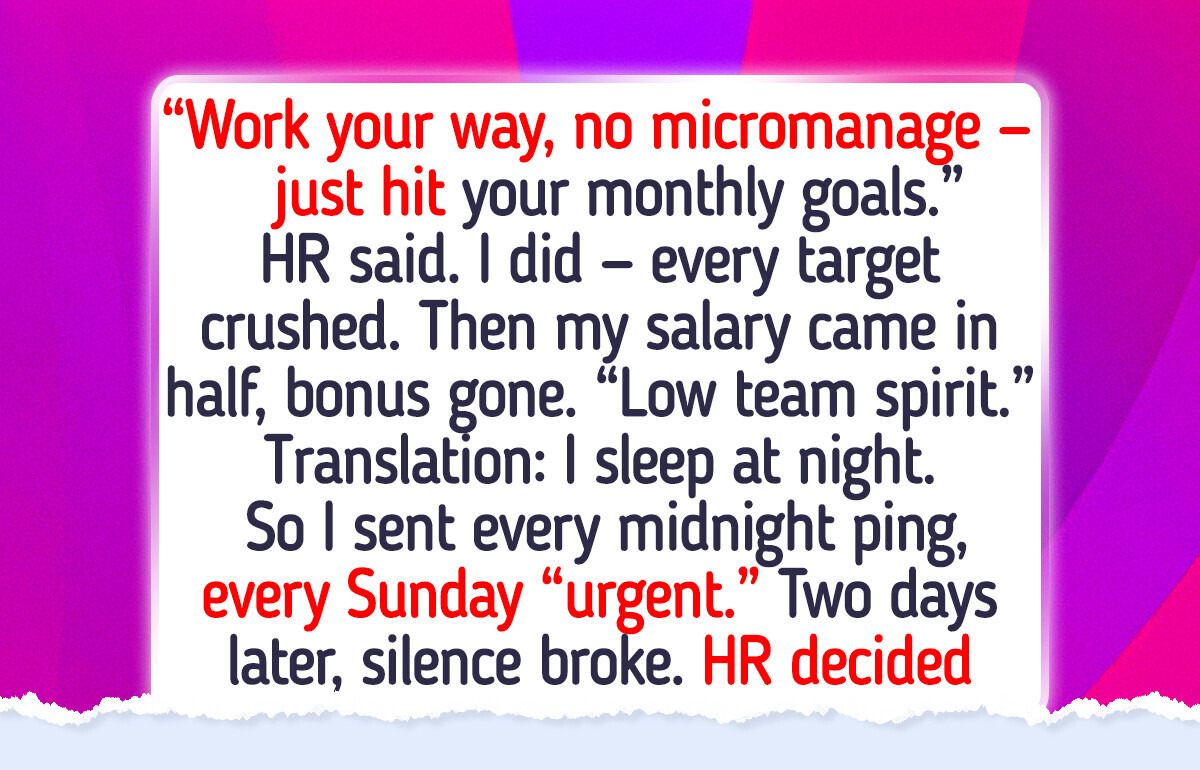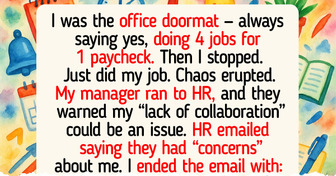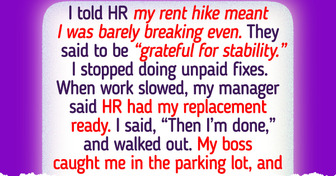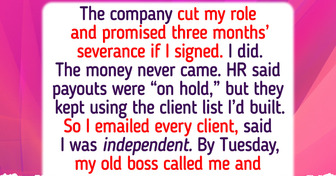I have ALWAYS said HR is a pretend job, which is aimed specifically on the side of Management. Rarely, IF EVER is it on the side of c the employee.
I Signed Up for a “Flexible Job” — I Got a Low Salary and Zero Boundaries Instead

In today’s workplace, “flexibility” is the new buzzword — but not everyone’s experience lives up to the promise.
In this letter from one of our readers, they share how a so-called flexible job turned into a 24/7 commitment, and how standing up for themselves exposed a side of corporate “freedom” few talk about.
The letter:
Hi dear Bright Side team!
When I joined the company, HR promised freedom.
“Work your way,” they said. “We don’t micromanage — just hit your monthly goals.”
Sounded perfect. I thrive when I’m trusted.
For months, I did exactly that — met every single target. Sometimes I even exceeded them. My metrics were spotless. Then, without warning, my paycheck dropped. Half my salary — gone. HR said my “team spirit” was under review. Apparently, I wasn’t engaged enough in team chats.
Translation: I didn’t reply to Slack messages after 10 p.m. I sleep at night.
I asked HR to point out where, exactly, that rule existed in my contract. Instead of answering, they cc’d my manager — the same one who sent “urgent” pings at 11:47 p.m. and scheduled “quick syncs” on Sunday mornings.
He replied, smugly:
“We expect flexibility both ways.”
That’s when I snapped.
I pulled every Slack log, timestamped every late-night message, every weekend call, every “urgent” text that could’ve waited until Monday. I even found the night he messaged me while I was on vacation — asking for a “small favor.”
Then I sent the receipts.
To HR.
CC: Legal. Payroll.
Two days later, silence broke. HR’s tone had changed:
“After reviewing the situation, we’ve decided to restore your bonus, with full back pay.”
Guess who suddenly had to start logging his work hours like everyone else?
Let’s just say flexibility got redefined — and not in the way they intended.
I stayed for three more months, doing my job quietly, hitting every goal like always. But something had shifted. The money came back, sure — yet the trust never did. Every message felt like a test. Every “quick sync” came with an edge.
So I left.
No drama, no notice period games — just a polite resignation and a quiet goodbye.
Because once trust is broken, no bonus can buy it back.
We’re grateful to our reader for writing in and shedding light on what really happens when HR policies and flexible work promises collide. Their experience is a reminder that standing up for fairness isn’t just brave — it’s necessary for building better, more honest workplaces.

When Work Stops Ending.
There was a time when work actually ended. You’d clock out, close your laptop, and step back into your life. Even if your job was stressful, at least it had a finish line.
Now? That line has vanished.
Today’s workday doesn’t stop — it stretches. It starts before the sun comes up and keeps going long after it sets. It creeps into dinners, weekends, and even vacations. The classic 9-to-5? It’s quietly turned into a 6-to-10... with a bonus shift on Sunday.
We call it flexibility, but somewhere along the way, “flexible” started to mean always available.

So What Can HR and People Leaders Actually Do?
You can’t fix an always-on culture with a “no emails after 6 p.m.” memo.
This isn’t a time-management issue — it’s a culture issue — and it needs culture-level solutions.
Here’s where to start.
1. Make Time Ownership a Core Value
Help teams define — and defend — their own boundaries.
Establish clear core collaboration hours and make it explicit that flexibility doesn’t mean constant availability.
Encourage teams to ask themselves:
When do we expect real-time responses?
When do we protect deep-work time?
When is it okay to fully unplug?
2. Audit the Noise
Take a hard look at where interruptions come from.
Are meetings defaulting to 30 minutes when 15 would work?
Are updates that could be asynchronous turning into endless calls?
Does last-minute scheduling create hidden stress?
You don’t need to ban meetings — just make them intentional.
Silence the chaos so focus can return.
3. Model the Boundaries You Preach
Leaders set the tone. If you’re emailing at midnight, your team will assume they have to.
Use delay-send. Block out deep-work time on your calendar — and protect it.
Show your offline hours publicly.
Employees don’t need permission to rest; they need proof that it’s safe.
4. Listen for the Creep
Always-on culture rarely announces itself — it creeps in quietly.
Look for clues: falling focus scores, survey comments about fragmented work, or spikes in after-hours activity.
Make regular check-ins part of your listening strategy.
When you notice the creep, name it. Employees don’t expect perfection — they expect honesty.
Boundaries Are the New Benefit
Work isn’t harder because people care less — it’s harder because it never ends.
To protect creativity, collaboration, and retention, leaders must help employees reclaim their time — not just in policy, but in practice.
Real flexibility isn’t being available at all hours.
It’s having the freedom to stop.
Somewhere between “working from anywhere” and “always being online,” we forgot how to rest.
12 Stories That Prove Little Acts of Kindness Never Stay Little
Comments
Related Reads
I Cut Off My Parents After They Demanded My Inheritance—and I Don’t Regret It

I Refused to Do Extra Work, and HR Tried to Punish Me

11 Stories That Prove First Love May Be Short, but Leaves a Lasting Mark Forever

I Refused to Pay for Our Valentine’s Dinner—Then I Learned the Heartbreaking Truth

My Family Excluded My Girlfriend From Christmas Because We’re Not Married

15 Stories That Show Kindness Is a Quiet Language the World Needs

HR Told Me to Be Grateful for Pay That No Longer Covers Rent — Then Reality Hit Harder

I Refuse to Be My Brother’s ATM Anymore—The Revenge He Planned Was Sick

15 Stories That Inspire Us to Choose Kindness, Even If the World Gets Ugly

17 Moments That Remind Us Kindness Is a Choice, Not a Mood

I Lost My Job to “Restructuring” and My Severance Disappeared, Then I Turned the Tables

10 Hospital Workers Who Prove Kind Heart Is a Powerful Medicine
